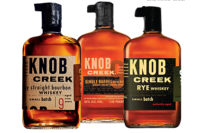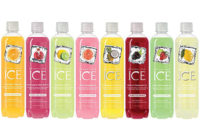
In seven years, Oskar Blues has grown from brewing one type of beer in the basement of its Lyons, Colo., brewpub to producing 29,000 barrels of beer in five varieties and distributing its products in 25 states.
The Oskar Blues lineup began with the company’s flagship Dale’s Pale Ale and has since grown to include Scottish-style Old Chub, a hybrid-style beer known as Gordon, pilsner Mama’s Little Yella Pils and imperial stout Ten Fidy.
The clever names and nuanced styles of beer are not the only thing setting Oskar Blues apart, explains Chad Melis, marketing director. Unlike many of its counterparts in the craft category, Oskar Blues packages its beers in cans.
“Out of the blue, a supplier offered us a hand-canning machine,” Melis says. “We laughed at first, but then we realized the can is a better package than a bottle. It’s lighter, more environmentally friendly, and it’s safe.”
Canned beers also allow consumers to take the beers on hikes, bike rides and other outdoor adventures, such as exploring Rocky Mountain National Park, which is 20 minutes away from the Oskar Blues Grill & Brew in Lyons, Melis says.
“We’re right near Longs Peak, and cans provide portability for our active lifestyles,” Melis says. “We are surrounded by natural beauty, and there’s nothing better than to enjoy the outdoors and a good quality beer.”
Natural inspiration
The Rocky Mountains were an aspect of the initial inspiration for Dale Katechis, who founded Oskar Blues as a brewpub in 1997. With a population of 1,500 people, Lyons is a popular stop in the summer for tourists on their way to the nearby national park. But in the winter, the town returns to its sleepy nature, Melis says.
In 2002, Katechis thought canning the brewpub’s beers would help advertise for the restaurant throughout the year. His plan, dubbed the “Canned Beer Apocalypse,” quickly took off, and the company had to expand its canning operations out of the basement of the brewpub and into a production facility in nearby Longmont, Colo., Melis says.
Expanded production capabilities also led to new brews. The operation began with Dale’s Pale Ale, a hoppy pale ale that makes up 60 percent of its sales, Melis says. Oskar Blues also offers Scottish-style beer, Old Chub, which has 8 percent alcohol by volume and is malty with smoked and caramel overtones, Melis says.
The brewer’s Gordon Ale is named after Gordon Knight, a Colorado craft beer pioneer and Vietnam veteran who died fighting a wildfire outside of Lyons in 2002. Melis describes the product as not really fitting into a category, but rather residing in its own niche between an Imperial Red and a Double IPA. Gordon Ale begins with a green, organic hoppy smell, has a malty body and a sweet ending, Melis says.
Oskar Blues offers its winter seasonal imperial stout Ten Fidy through next month. The high-end beer retails for $15 for a four-pack, and “pours like motor oil,” Melis says.
In celebration of the brewery’s seventh anniversary, Oskar Blues will launch a new seasonal variety that will be available from March to October. The yet-to-be-named beer is described as an Imperial IPA that “will greet craft brew drinkers with a pungent citrus blast, provide a spicy yet round middle, and finish with a brisk, clean bitterness,” the company says.
In the summer, the complex ales give way to a “crisp, refreshing lager,” known as Mama’s Little Yella Pils. The beer becomes Oskar Blues’ No. 2 seller during the warmer months, Melis says.
In addition to providing portable packaging for outdoor enjoyment, the company also sponsors local cyclists, including a 2008 Olympian and a Rocky Mountain region champion.
“We see it as a general tie-in to support Colorado cyclists,” Melis says. “We do a lot of events and try to support cycling in general. It’s really ingrained in who we are. Oskar Blues is all about beer, bikes and music.”
The company showcases its affinity for beer, bikes and music with a regular schedule of events in the original Oskar Blues Grill & Brew and the Tasty Weasel Taproom and Homemade Liquids & Solids restaurant, two establishments in nearby Longmont.
Outside of the area, the “Canned Beer Apocalypse” ushered in a new wave of Oskar Blues fans that spreads across the country in 25 states. The company wants to strengthen its relationship within its current network of distributors prior to opening new markets, Melis says.
“We got into everything so quickly that we didn’t have the thoroughness we would like to,” he explains. “We want to focus on building relationships and doing a better job with the clients we have now. I don’t know if we’ll be opening any new markets, but we will be upping the ante somehow.” BI

